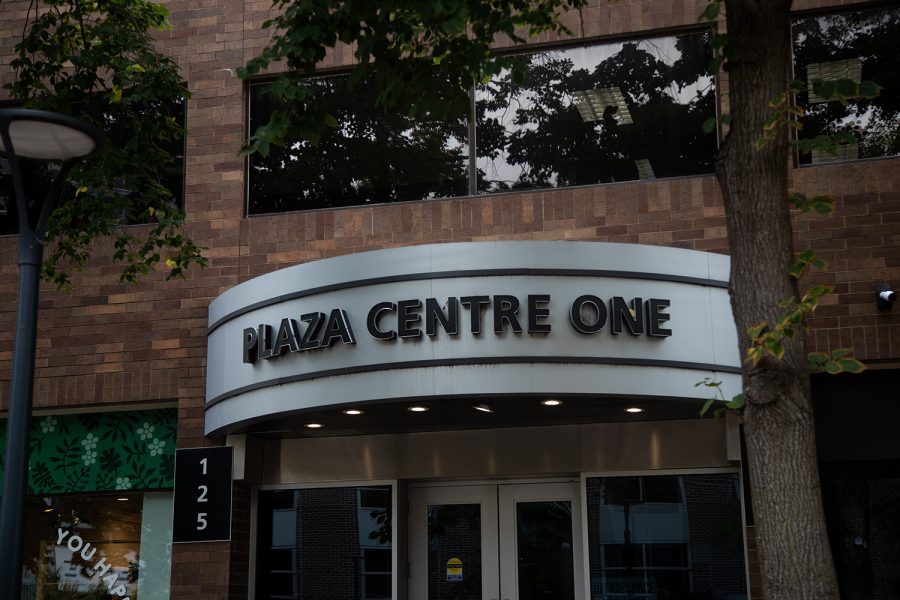UI Scanlan Center for School Mental Health opens for patient referrals
The Scanlan Center for School Mental Health started receiving patient referrals on Sept. 6, opening its resources to teachers and students all over the state. The center’s mission is to provide short-term and crisis counseling to all those in need.
The Scanlan Center for School Mental Health Clinic is located on the fourth floor of Plaza Centre One on Sept. 12, 2022.
September 12, 2022
The University of Iowa’s Scanlan Center for School Mental Health opened its clinic for patient referrals on Sept. 6, making researchers, instructors, and clinicians available for Iowans.
Located at 400 Plaza Centre One at 125 S. Dubuque Street, the clinic will increase mental health care and services for preschool through 12th grade students, educators, and school staff.
Map by Ryan Hansen/The Daily Iowan
The center, which is housed in the UI’s College of Education, originally launched in 2021, but is now focusing on creating a well-prepared staff for all schools in the 99 counties of Iowa.
According to its website, the center will establish evidence-based practices, clinical assessments, and intervention services. The clinic will help offer more mental health services in various situations:
- Crisis debriefing services will be offered after a traumatic event that impacts a school or district
- Short-term individual counseling support will be available for individuals requiring additional care following a crisis event
- Professional consultation and support will be available for school-based crisis teams
Additionally, the clinic is planning to offer individual counseling services for students, educators, and school staff who have identified mental health needs. These services are time-limited.
The clinic is prioritizing care for groups that meet the following criteria:
- People living in rural communities who have limited access to mental health services
- Individuals who face financial barriers regarding mental health services
- Individuals with acute needs following a crisis
- Individuals who need “bridge support” while waiting to connect with a long-term provider
Most of the individual services will be offered to patients via telehealth, however people around the Iowa City area who wish to be seen in office can request in-person appointments.
In June 2022, the Iowa Center for School Mental Health received a $15 million donation from the Scanlan Family Fund, the largest donation that the University of Iowa’s College of Education has ever received.
The center was originally named the Iowa Center for School Mental Health but changed after the donation. The state Board of Regents approved the center's name change on July 27.
Allison Bruhn, executive director of the Scanlan Center for School Mental Health, said the center expanded to every school district in Iowa, meaning the resources provided by the center is available to teachers, students, and faculty all over the state.
Bruhn said the center works with various educational services throughout Iowa to promote the center.
Schools or Iowa’s Area Education Agencies can refer students for support through the Scanlan Center for School Mental Health.
The Area Education Agencies is as a partner to the Scanlan Center with the goal of helping to identify and serve children who have special needs, disabilities, or mental health issues all the way up into adulthood.
Alongside using the Area Education Agencies as a resource, Director of clinical services for the Scanlan Center Alissa Doobay said the center is relying on the schools themselves to seek out help and support.
“Rather than parents contacting us, we are focusing on having school administrators or school mental health providers go ahead and initiate that referral process when they identify students who are in need of support and don't really have access to those supports through the systems that already exist in the schools,” Doobay said.
In Bruhn’s opinion, the object of the Scanlan Center for School Mental Health is to be a starting point for students and educators with mental health needs.
“The idea is not that we are a long-term therapeutic service,” Bruhn said. “We want to support students and schools and then help them access local resources if they need it in the longer term.”
Kate Perez contributed reporting to this article.



